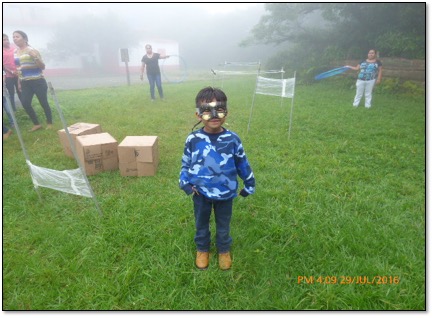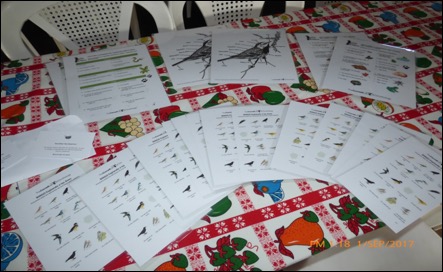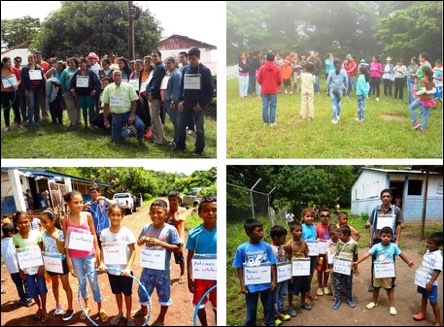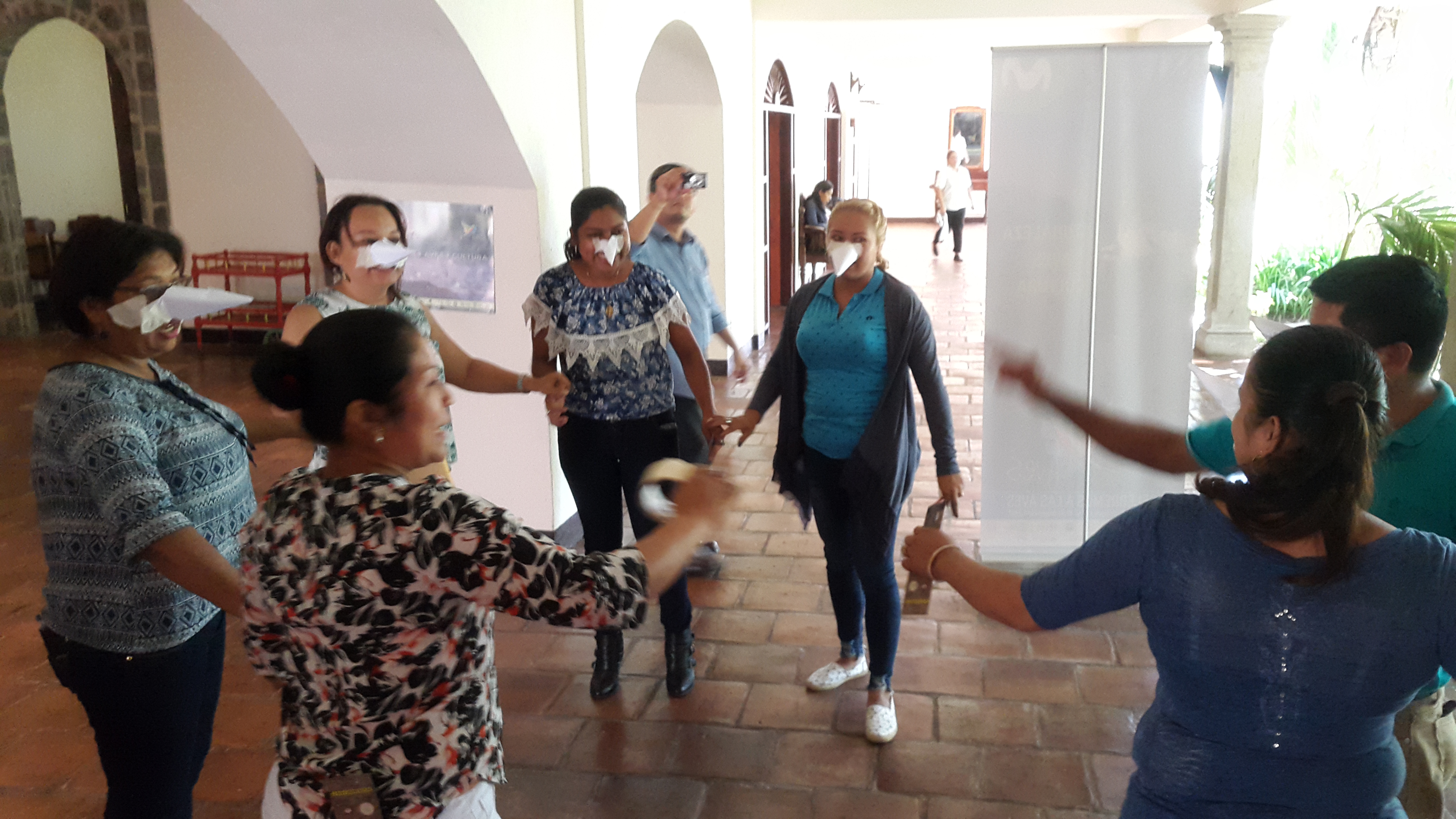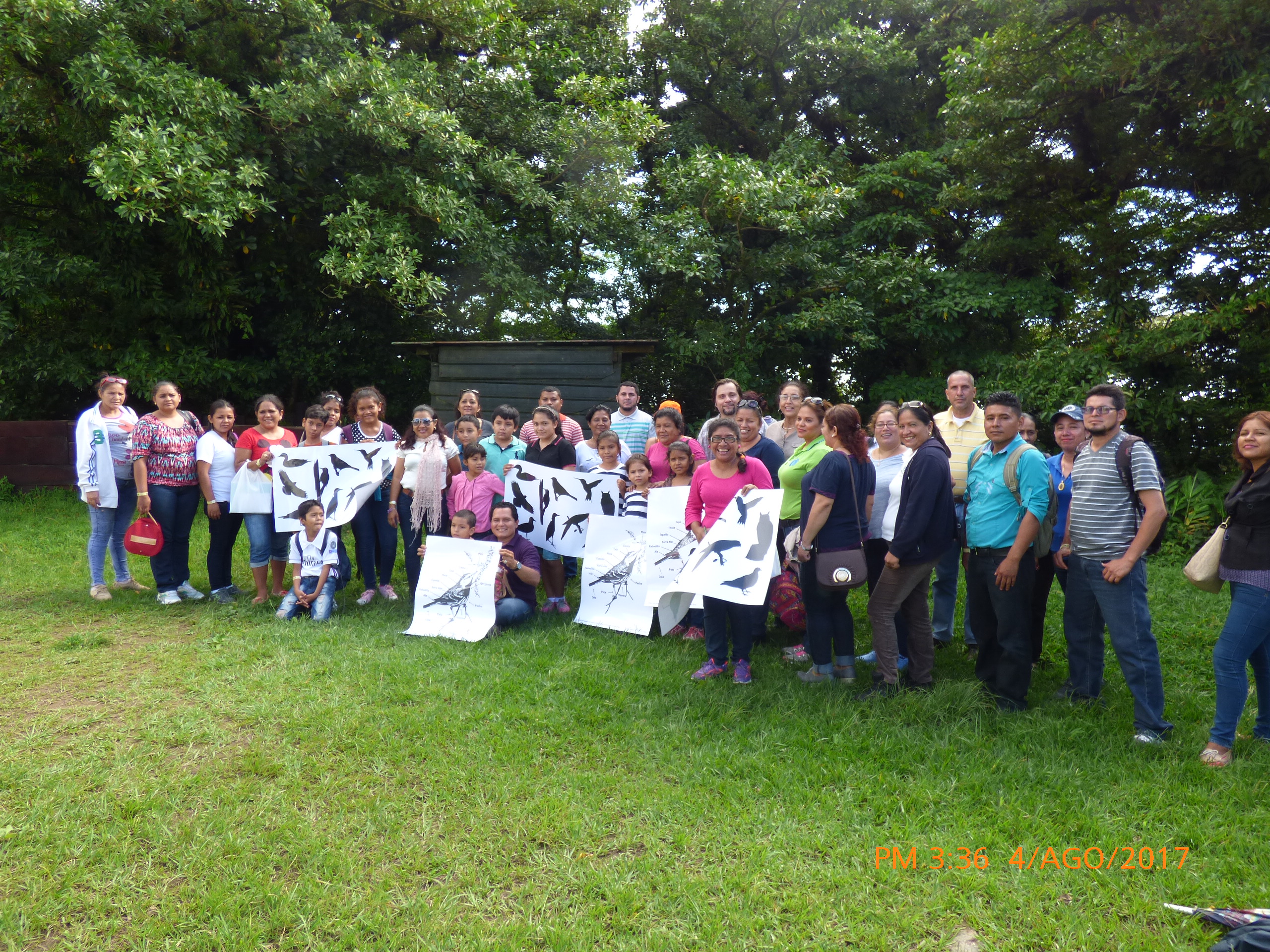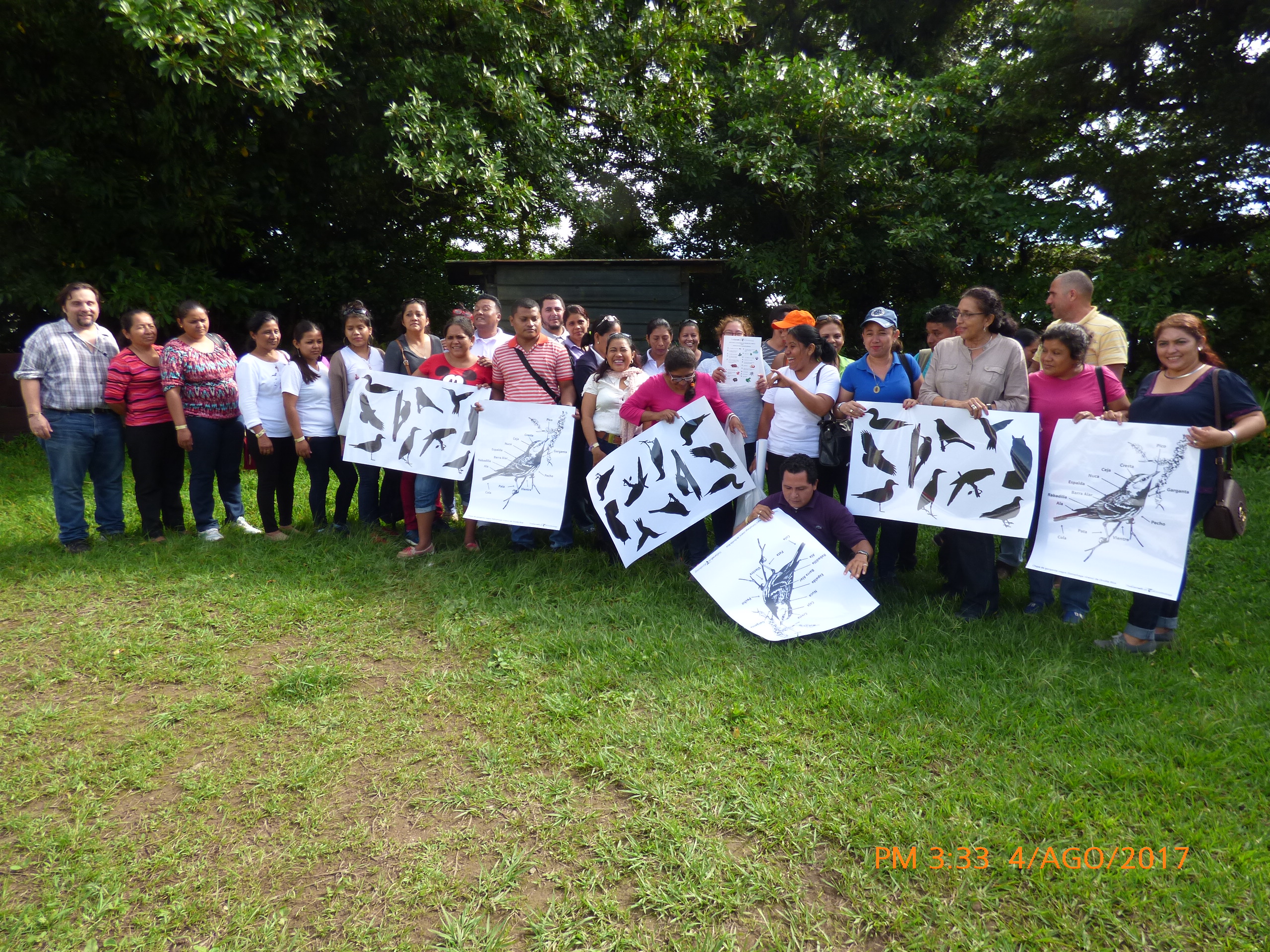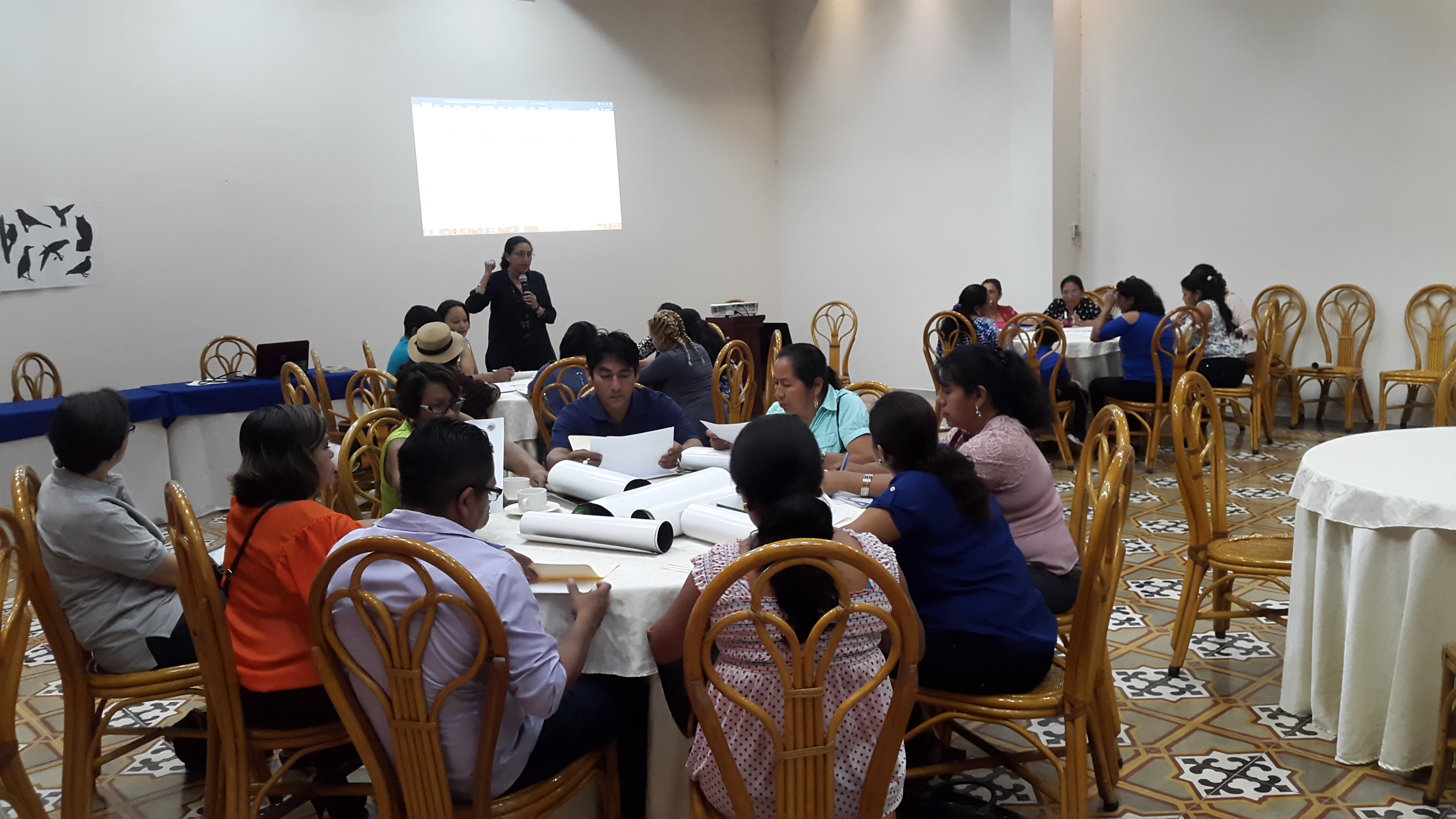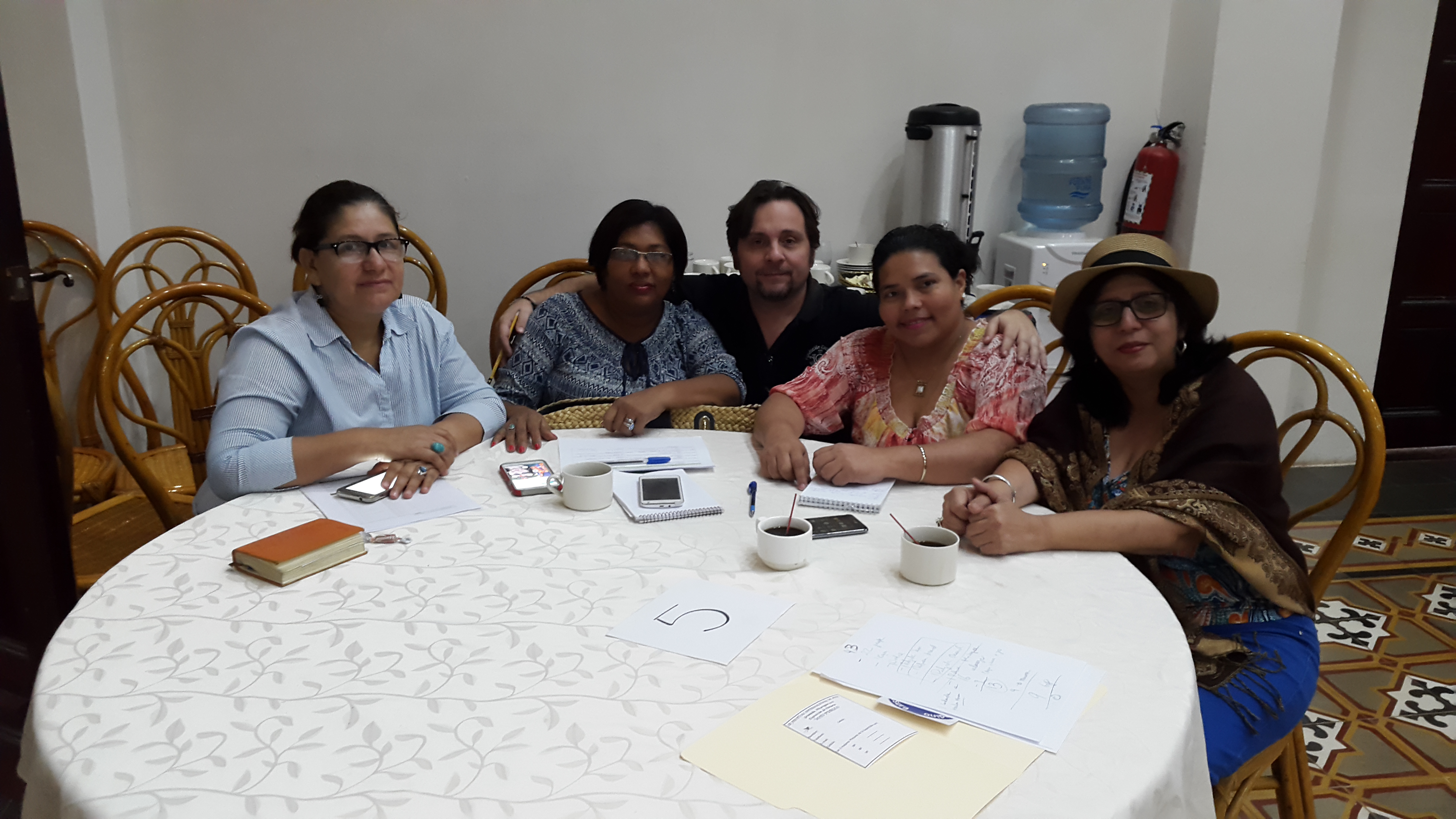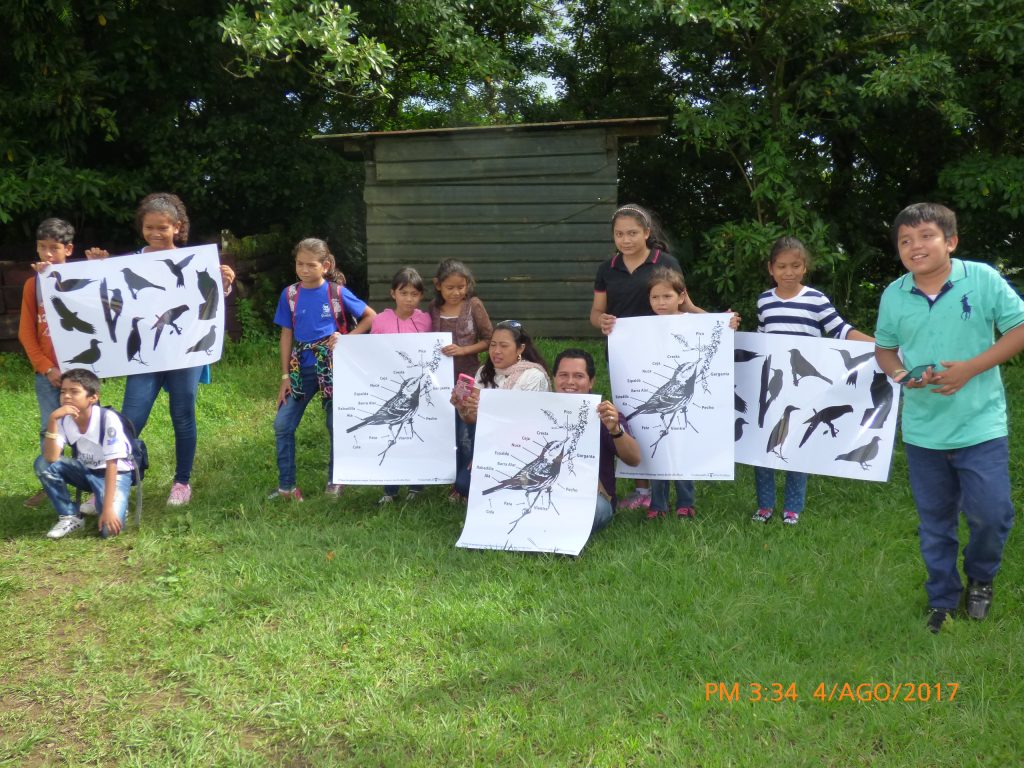 Photo ©
Fundación Cocibolca
Photo ©
Fundación Cocibolca
The Cocibolca Foundation is an environmental organization with a special focus on conservation. They have dedicated more than 20 years to conserving natural resources in the Mombacho Volcano National Preserve in Granada, Nicaragua by holding events and educational workshops for local rural communities and sharing information and educational materials about bird conservation for protected species including the Wood Thrush (Hylocichla mustelina), Swainson’s Thrush (Catharus ustulatus), and Ovenbird (Seiurus aurocapilla). Through these workshops, the community engages with environmental issues and becomes passionate about protecting their local birds. They utilize an international network called MoSI (Monitoreo de Sobrevivencia Invernal de Aves Migratorias) to monitor the survival of migrating birds in the winter. The Cocibolca Foundation draws awareness to the sustainable conservation and protection of local flora and fauna, which are closely tied to ecotourism and birding.
Students and teachers from six rural elementary schools in the Mombacho Volcano National Preserve participated in a series of fun activities planned by the Cocibolca Foundation. With International BirdSleuth curriculum in hand, students participated in group bird observations created to highlight the beauty of birds. Following this first activity, they looked forward to continuing to observe birds with their families! Teachers went home with a lecture from the curriculum to practice incorporating it into their classrooms. The educational leaders of the workshop, Benito Juárez, José Dolores Estrada, Poste Rojo, the Miravalle and San Ignacio schools, as well as members of the Club de Leones (Lions Clubs International), discussed bird migration.
The goal of these activities is simple: to inspire teachers to integrate environmental issues into their classrooms and, in turn, get their students at home involved. Educators can use the International BirdSleuth curriculum with their students, and together get everyone excited about birds and community greening! Among the many activities offered by the Cocibolca Foundation at the Third International Bird Festival were teacher workshops. Educators, experts from MINED, students, and others were invited to participate.
The central theme of the workshops during the Third International Bird Festival was the permanent presence of birds in our lives, and the consequent need to protect and conserve them. The relationship between Nicaraguan culture and local birds was discussed in groups. Participants listened to stories, songs, and poems that featured birds. Everyone was intrigued to hear about the impact birds have in their community, and thrilled to take materials home to learn more about their local wildlife.
For the third workshop in the festival, four delegates from the Ministry of Environment and Natural Resources (Ministerio del Ambiente y Recursos Naturales) came to support and experience the program. They were left impressed by the group’s collective commitment to a more green and sustainable lifestyle.
At the end of the program, students from the rural community took part in a reflection activity. Participants felt that the initiatives of the festival “had led them to learn about birds, and had raised awareness on the need to protect and conserve” their local nature. They also felt that, with the materials from International BirdSleuth, they knew about migration and the dangers it poses to birds and had been introduced to technological tools as a new way to record their observations. Everyone left excited to make a lasting effect on bird conservation!
The Cocibolca Foundation would like to thank the Ministry of Environment and Natural Resources (Ministerio del Ambiente y Recursos Naturales) for their support. They would also like to thank Dr. Lilly Briggs and the Cornell Lab of Ornithology for their materials and support in helping the workshops come to life.
